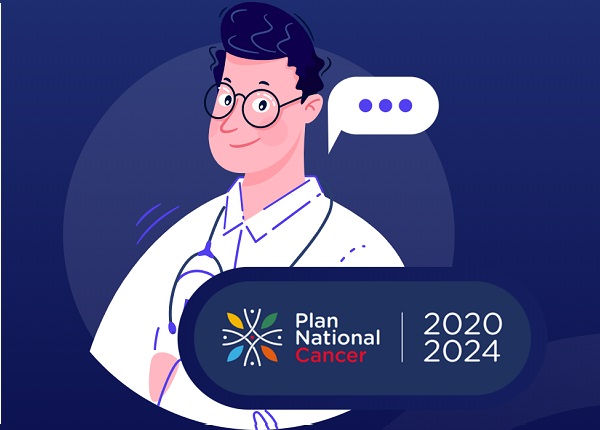 Credit: Colive Cancer/LIH
Credit: Colive Cancer/LIH
Saturday 4 February 2023 marked World Cancer Day; initiated by the international organisation Union for International Cancer Control (UICC), this day aims to raise awareness of this disease, which today represents the second highest cause of death in the world.
In Luxembourg, approximately 3,000 cancers are diagnosed each year and more than 1,000 people die from it. The most common cancers are, in men, lung cancer, prostate cancer and colorectal cancer, and in women, breast cancer, lung cancer and colorectal cancer.
Cancer prevention: reducing risk factors and getting screened
Luxembourg's Ministry of Health has stated that, in general, a healthy lifestyle helps reduce the risk of cancer. The Health Department therefore recommends adopting the following habits: no smoking, do not consume alcohol, moderate consumption of red meat (max. 500g/week) and cold meat (max. 150g/week), consume fruit and vegetables every day, move regularly and avoid being overweight. More specific preventive measures are also recommended, such as vaccination and screening.
The Centre for Coordination of Cancer Screening Programmes, which belongs to the Preventive Medicine and Population Health Division of the Health Department, is in the process of evaluating the implementation of four new organised cancer screenings recommended by the European Commission: stomach cancer, prostate cancer, cervical cancer and bronchopulmonary cancer. These screenings could theoretically reduce cancer-related mortality in Luxembourg by at least 50%.
Actions to fight cancer in Luxembourg: the second National Cancer Plan (PNC2) 2020-2024
“Cancer represents a real public health challenge for our societies. In order to better fight against this disease, a second cancer plan which spans the period 2020-2024 has been put in place”, indicated Luxembourg's Minister of Health, Paulette Lenert.
The second National Cancer Plan 2020-2024 (PNC2) carried out its second year of implementation in 2022. Thanks to the involvement of the institutions, all the healthcare professionals and the patients present in the axes and working groups dedicated, several actions and projects have already materialised.








